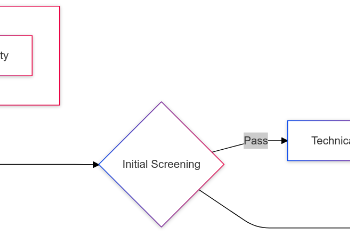Scope and Coverage of the FLSA
Employers Subject to FLSA
The FLSA applies to a wide range of employers, particularly those with annual sales of $500,000 or more or those engaged in interstate commerce. The term “interstate commerce” is broadly interpreted and includes activities such as using the U.S. mail, telephones, or the internet to contact other states. This means that even small businesses with minimal cross-state transactions may still be subject to FLSA regulations.
- Get Your Direct Quote: Instant Investment Insights and Financial Guidance
- How the Equal Employment Opportunity Commission (EEOC) Impacts Financial Performance and Business Ethics
- Mastering Cost Accounting: How to Optimize Costs, Boost Profitability, and Drive Business Success
- Understanding Consumer Credit: Types, Benefits, and Responsible Usage
- Understanding the Five-Year Rule: A Comprehensive Guide for Investors and Financial Planners
Employees Covered by FLSA
The FLSA distinguishes between exempt and nonexempt employees. Nonexempt employees are entitled to minimum wage and overtime pay, while exempt employees are not. Examples of exempt employees include executives, administrators, professionals, and outside salespeople. Understanding this distinction is critical for proper classification and compliance.
Bạn đang xem: Mastering the Fair Labor Standards Act: A Comprehensive Guide for Finance, Business, and Investment Employers
Minimum Wage and Overtime Pay
Minimum Wage Requirements
The federal minimum wage rate is $7.25 per hour, although some states and local jurisdictions have higher minimum wages. Employers must ensure that all nonexempt employees receive at least this amount. For tipped employees, there is a special provision known as the tip credit, which allows employers to pay a lower direct wage as long as the tips received by the employee, combined with the direct wage, equal or exceed the minimum wage.
Overtime Pay
Overtime pay is calculated as one and a half times the regular rate of pay for hours worked beyond 40 in a workweek. A workweek is defined as a fixed, recurring period of 168 hours or seven consecutive 24-hour periods. This calculation can be complex, especially for employees with variable schedules or those who work irregular hours.
Exemptions Under the FLSA
Executive Exemption
Xem thêm : How to Use Form 4952: A Comprehensive Guide to Investment Interest Expense Deductions
To qualify for the executive exemption, an employee must manage at least two other employees, have the authority to hire, fire, and promote, and have management as their primary duty. This exemption is often misunderstood, so it’s important to carefully evaluate an employee’s responsibilities.
Administrative Exemption
The administrative exemption applies to employees whose primary duty is related to management or general business operations and who exercise discretion and independent judgment. This exemption is not limited to traditional administrative roles; it can apply to various positions that involve significant decision-making.
Professional Exemption
The professional exemption covers employees who perform predominantly intellectual work requiring advanced knowledge, talent, or imagination. This includes professionals like lawyers, doctors, and engineers.
Highly Compensated Employees
Highly compensated employees are those who earn an annual compensation of $107,432 or more and perform duties of an exempt executive, administrative, or professional employee. These employees are generally considered exempt from overtime pay requirements.
Record Keeping and Compliance
Xem thêm : Top Currency Investment Strategies: Maximizing Your Wealth in the Global Market
Maintaining accurate records of hours worked and wages paid is crucial for FLSA compliance. Employers must keep detailed records that are transparent and enforceable. This includes documenting overtime hours, tips received by tipped employees, and any deductions made from wages.
Special Considerations and Common Misclassifications
Misclassification of Employees
Misclassifying employees as exempt when they should be nonexempt can lead to significant legal consequences. This is particularly common in the financial services industry where administrative employees or commissioned mortgage loan officers might be incorrectly classified. Ensuring proper classification is essential to avoid legal risks.
Tip Pooling and Tipped Employees
For tipped employees, tip pooling guidelines must be followed carefully. Employers must ensure that employees keep all tips unless part of a valid tip pool. Mismanagement of tip pools can result in legal issues and dissatisfaction among staff.
Child Labor and Other Provisions
The FLSA includes strict prohibitions on child labor, with special rules for minors. Employers must adhere to these regulations to protect young workers from exploitation. Other provisions include rules on wage discrimination, seasonal employees, and independent contractors.
Legal Implications and Enforcement
Non-compliance with FLSA regulations can result in severe penalties, including litigation and fines. The U.S. Department of Labor’s Wage and Hour Division plays a critical role in enforcing these laws. If an employer has violated FLSA rights, it is advisable to contact an employment attorney or file a complaint with the appropriate authorities.
Nguồn: https://staredecisis.quest
Danh mục: Blog





